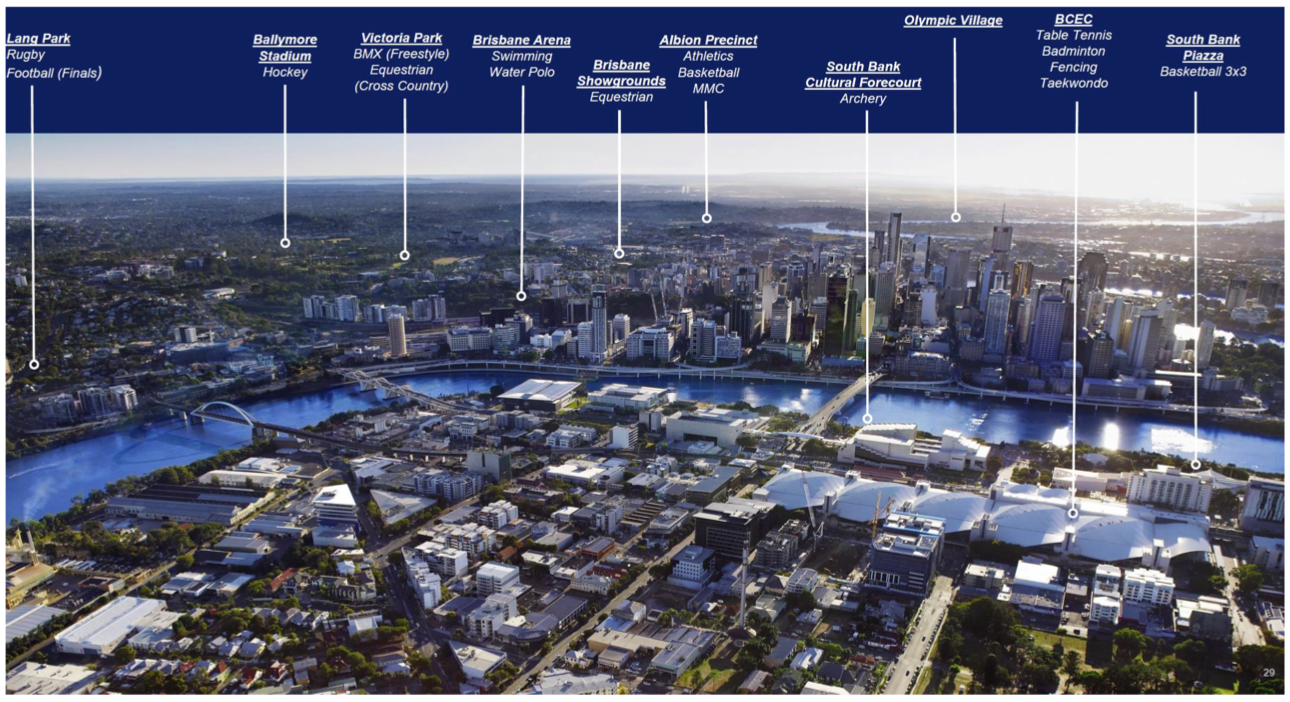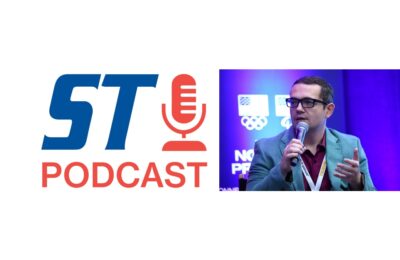
Brisbane, Australia, has received the inside track to host the 2032 Olympic and Paralympic Summer Games as the International Olympic Committee has named the region its preferred choice to continue dialogue on a hosting agreement. A final decision would still need to come from the IOC in a timeframe that has not yet been determined, but the recommendation from a commission studying potential bids received unanimous approval from the IOC Executive Board.
From here, the IOC will engage in further discussion exclusively with Brisbane in the hopes of establishing the framework of a host agreement. If those talks break down, the IOC would then approach the other destinations that expressed interest in hosting. Others that had reportedly expressed interest in hosting included Doha, Qatar; Rhine-Ruhr, Germany; Jakarta, Indonesia; Budapest, Hungary; and Chengdu and Chongqing, China.
Kristen Kloster Aasen, chairwoman of the IOC’s Future Host Commission, said Brisbane’s bid was forwarded because it included the most advance Games concept, called largely for existing venues to be used, provided favorable weather conditions in July or August and aligned with the region’s strategic goals of improving its transportation infrastructure and economic growth. The city also already meets the needed hotel inventory and had support from local, state and federal governments, she said.
“The Future Host Commission will now start a targeted dialogue with the Brisbane 2032 committee and will report back to (IOC) executive board in due course,” she said.
The move is the latest in a revamped bidding process that is designed to prevent the escalating costs for bid cities seeking to host the Games. By turning the process into more of a dialogue, the IOC is hoping bid cities will be less likely to wage campaigns against their competitors and to gain widespread support from their communities before proceeding with their plans. It also is designed to eliminate the notion that any city has “lost” its bid proposal. The IOC has further expressed a hope that the new process will make the bids more efficient and reduce the costs of high-paid consultants that have typically helped specific bids cross the finish line.
“These were the reasons why we said we have to change this procedure,” IOC President Thomas Bach said. “We had to follow other examples from the business world or other sports event organizers where you avoid this kind of situation where one candidate is attacking the other.”
But the new procedure does not come without controversy. What had been an open process in the past, with different stages of winnowing the competition, is now largely closed. By creating two commissions that will engage with potential hosts of either summer or winter Games, the IOC has reduced the number of people who hold the power to recommend a city move forward in the process. And with John Coates, longtime president of the Australian Olympic Committee, serving as vice president of the executive board, there have also been questions raised about whether he had any influence on the Brisbane bid being forwarded for further dialogue. Coates does not serve on either host Future Host Commission.
“Mr. Coates has not taken part in any kind of discussion of the IOC executive board concerning the reports of the Future Host Commission or related directly or indirectly to the Olympic Games 2032,” Bach said.
Queensland hosted the 2018 Commonwealth Games and has hosted other major international sports events. In its bid to host the Olympic and Paralympic Games, the city has proposed hosting most events in a cluster of 14 venues in Brisbane, with the Gold Coast hosting events at six venues and the Sunshine Coast hosting other events at four venues. The city is proposing building seven new venues for the Games, with the potential to reduce that number to two.
If approved, it would be the third Australian city to host the Olympics after Sydney in 2000 and Melbourne in 1956.











 Copyright © 2025 by Northstar Travel Media LLC. All Rights Reserved. 301 Route 17 N, Suite 1150, Rutherford, NJ 07070 USA | Telephone: (201) 902-2000
Copyright © 2025 by Northstar Travel Media LLC. All Rights Reserved. 301 Route 17 N, Suite 1150, Rutherford, NJ 07070 USA | Telephone: (201) 902-2000